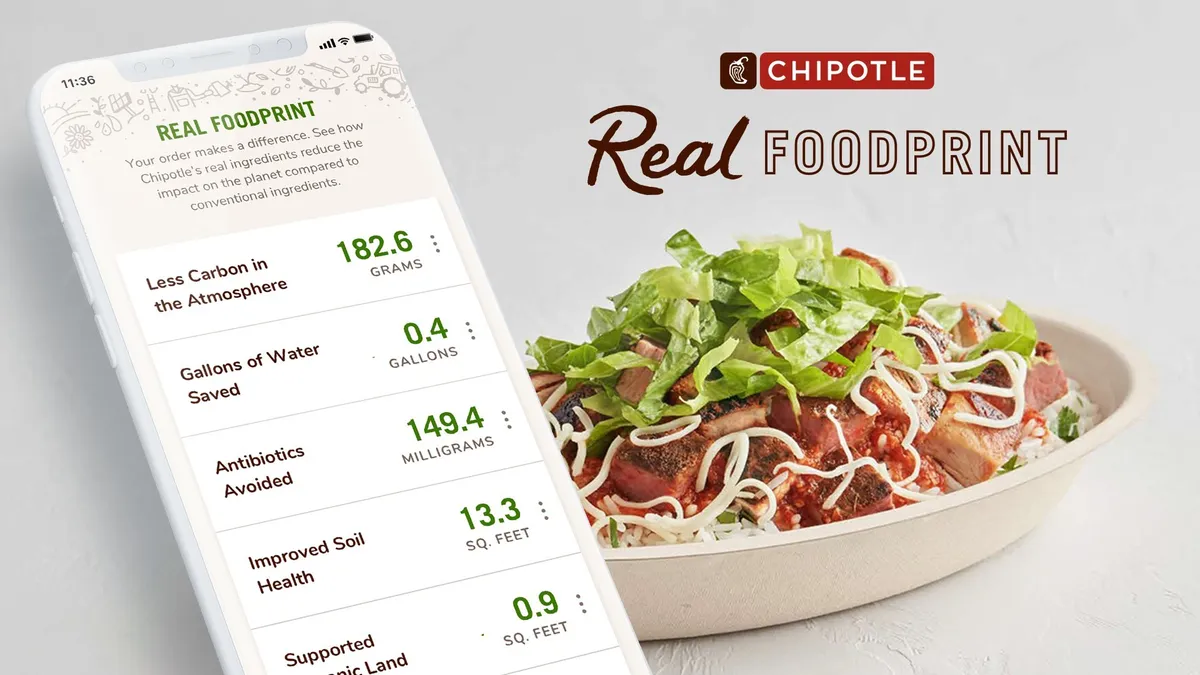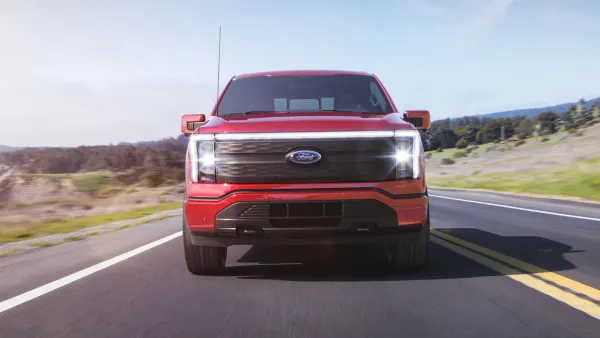Dive Brief:
- Chipotle has launched a "Real Foodprint" tracker on its app and website that lets diners measure and share the environmental impact of their orders, according to a press release.
- The chain partnered with independent researcher HowGood on the digital tool that analyzes five key metrics around the sourcing of Chiptole's ingredients, including carbon waste, gallons of water, soil health, use of organic land and antibiotics.
- The brand is the latest restaurant to jump on the sustainability trend as consumers grow more aware of how food supply chains significantly contribute to environmental degradation and climate change.
Dive Insight:
With the Real Foodprint tracker, Chipotle is putting a bigger investment behind sustainability, a topic that consumers — especially young ones — are growing increasingly concerned about as climate change worsens.
The level of granularity provided by the tracker could be a welcome change for consumers who want companies to prove their cause-oriented efforts produce tangible results. On that front, Chipotle is teaming with HowGood, a researcher that's previously worked with marketers, such as General Mills and Ahold Delhaize, but has not partnered with a restaurant brand before.
For its analysis, the firm aggregated data from official sources including the Department of Agriculture, World Health Organization, and the Food and Drug Administration to create a baseline to measure against. The tracker then compares the sourcing standards for Chipotle's ingredients to industry averages to show the positive difference in buying from the brand. Chipotle said it will look to HowGood's assessments to make further adjustments to its supply chain over time.
In a press release, Chipotle claimed that it is the "first brand to provide detailed impact data about its ingredients for guests." But other restaurants are stepping up their sustainability initiatives in a similar fashion.
Panera Bread earlier this month became the first national restaurant chain to label items on its menu as climate friendly, applying tags similar to those that show calorie counts. Fast-food giant Burger King over the summer ran a campaign illustrating the livestock industry's impact on the environment, using cow farts as a particularly illustrative example. Research cited by Panera found that 25% of greenhouse gases are generated by food production, and many brands are investing in plant-based offerings to lower their dependencies on meat.
Long having emphasized the natural qualities of its 53 ingredients, Chipotle is clearly angling to win over a cause-oriented Gen Z audience with the TikTok push starring Bill Nye.
In the videos, Nye acts as both Chipotle server and customer, walking viewers through the ordering process and how they can track what they buy with Real Foodprint. A separate YouTube spot is less conceptual, with Nye directly explaining the benefits of the tracker to the audience.
















